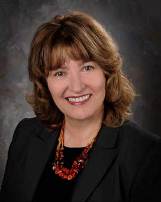People
MSC07 4255
1001 Medical Arts Ave NE
Albuquerque, NM 87102
Phone: (505) 925-4377
iikd@salud.unm.edu
MSC07 4255
1001 Medical Arts Ave NE
Albuquerque, NM 87102
Phone: (505) 925-4377
iikd@salud.unm.edu
TaParker@salud.unm.edu
Phone: 505.925.0776
717 Encino Place NE, Suite 9
Albuquerque, NM 87102
Building #044A on the UNM map
MSC07 4255
1 University of New Mexico
Albuquerque, NM 87131-1070

Faculty
Family & Community Medicine
Doctor of Philosophy in Medical Sociology, University of New Mexico
Master of Arts in Sociology, University of New Mexico
Bachelor of Arts in Sociology, University of New Mexico
Associate of Science in Nursing, University of New Mexico - Gallup
Dr. Parker, an enrolled member of the Seneca Nation (Beaver clan), is a tenured Associate Professor of Family and Community Medicine, and Associate Professor of Nursing at the UNM HSC School of Medicine. She is director and co-founder of the UNM HSC’s IIKD. Previously, she directed the UNM Center for Native American Health. Dr. Parker is also Assistant Dean of Academic Affairs and a fellow in the 2013-2014 Drexel University Executive Leadership in Academic Medicine (ELAM) program. Her research addresses American Indian (AI) depression, substance use, historical trauma, the role of maternal stressors in pediatric obesity prevention, and youth incarceration. Dr. Parker’s research also includes integrated health care, including traditional healing. Her priority approach is AI health beliefs/practices as foundation for interventions development. She is co-founder of the All Nations Wellness and Healing Center (ANWHC) for the Albuquerque urban AI community. Dr. Parker mentors a number of junior faculty, and AI medical, doctoral and health professions students. She teaches a Community-Based Participatory Research and Indigenous Knowledge Summer Institute. Dr. Parker and the IIKD team deliver community health assessment education to AI communities nationally that emphasizes core cultural values, sovereignty, self-determination, and health workforce development. Another innovation includes a Telehealth Connections for AI Education initiative to close curriculum gaps, create a bi-directional teaching bridge between traditional healers and health sciences students, and connect students from community to campus.